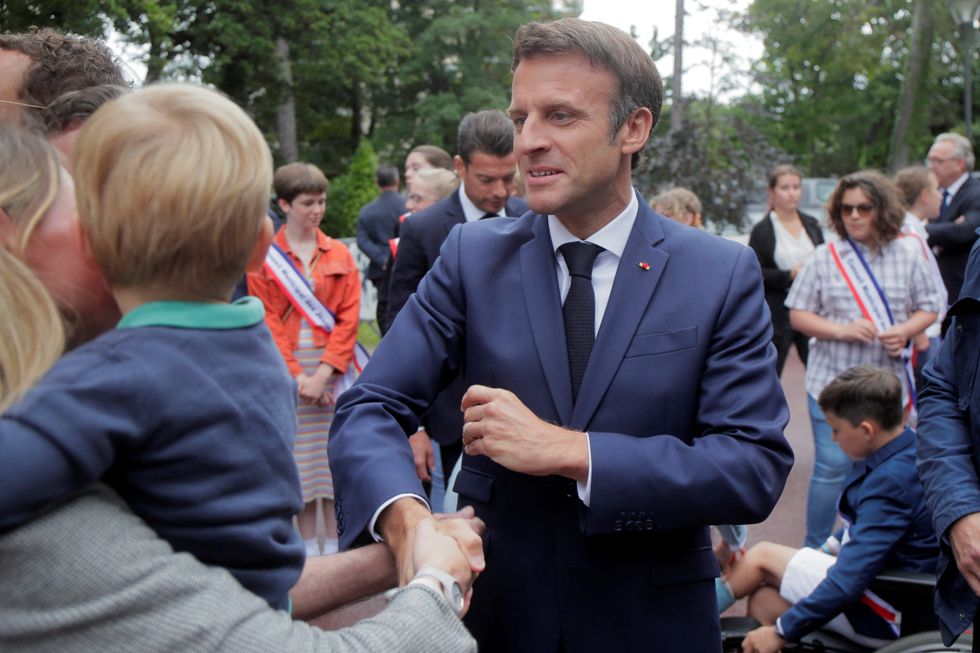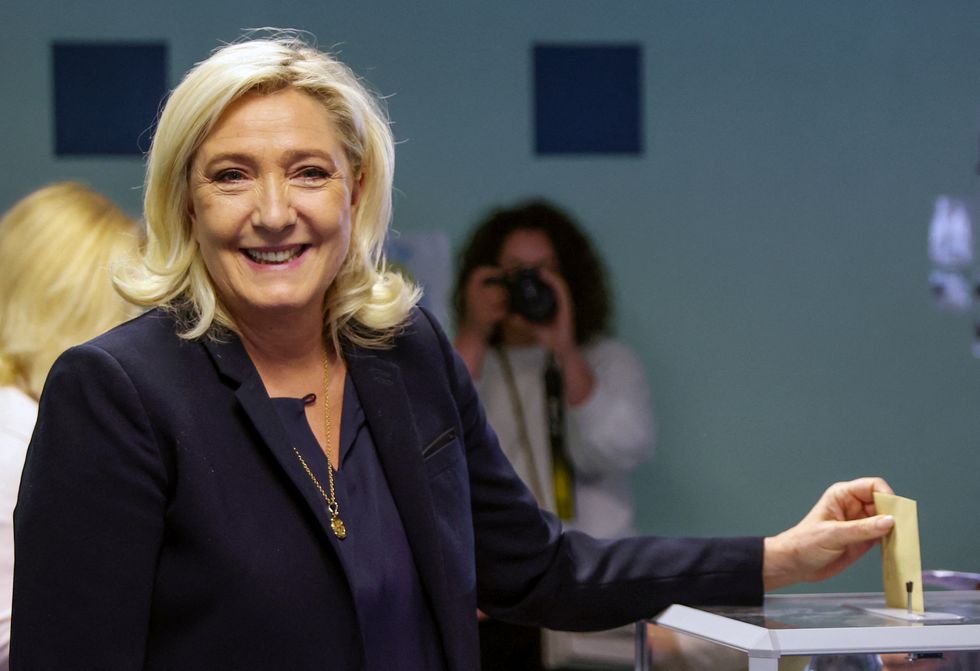If no agreement is reached between the parties, France may be facing paralysis
Don't Miss
Most Read
Trending on GB News
President Emmanuel Macron on Monday was faced with trying to salvage a ruling majority and with it his economic reform agenda after voters punished his centrist 'Ensemble' alliance in France's parliamentary election.
While Ensemble secured the largest number of lawmakers in the 577-seat National Assembly, it fell comfortably short of the threshold required for an absolute majority in a vote that saw a leftwing alliance and the far-right perform strongly.
Final figures showed Macron's centrist camp got 245 seats - short of the 289 needed for an absolute majority.
The vote was a painful setback for Macron, 44, who was re-elected in April and wants to deepen European Union integration, raise the retirement age and inject new life into France's nuclear industry.
French President Emmanuel Macron cheers supporters before voting during the final round of the country's parliamentary elections, in Le Touquet.
POOL
There is no set script in France for how things will unfold.
Marine Le Pen, French far-right National Rally (Rassemblement National) party candidate, votes in the second round of the French parliamentary elections, at a polling station in Henin-Beaumont.
JOHANNA GERON
Macron's options include forming a ruling coalition or presiding over a minority government that has to enter into negotiations with opponents on a bill-by-bill basis. The alternative if no agreement can be found is for the euro zone's second biggest economy to be plunged into paralysis.
Jean-Luc Melenchon, leader of French far-left opposition party La France Insoumise (France Unbowed), member of parliament and leader of left-wing coalition New Ecologic and Social People's Union (NUPES), votes in the second round of French parliamentary elections, at a polling station in Marseille.
ERIC GAILLARD
"We will be working from tomorrow towards forming a majority of action ... to guarantee stability for our country and carry out the necessary reforms," Prime Minister Elisabeth Borne said as results filtered through late on Sunday.
Macron became in April the first French president in two decades to win a second term, as voters rallied to keep the far-right out of power.
But, seen as out of touch by many voters, he presides over a deeply disenchanted and divided country where support for populist parties on the right and left has surged.
Marine Le Pen's far-right National Rally party won its largest ever representation in the lower house while a resurgent left-wing bloc, Nupes, headed by the hard-left Jean-Luc Melenchon will form the largest opposition force.
"The rout of the presidential party is complete," Melenchon told supporters.
Even so, his own unlikely alliance may now find holding together harder than winning votes.
After a first presidential mandate marked by a top-down government style that Macron himself compared to that of Jupiter, the almighty Roman god, the president will now have to learn the art of consensus-building.
"This culture of compromise is one we will have to adopt but we must do so around clear values, ideas and political projects for France," Finance Minister Bruno Le Maire said.











